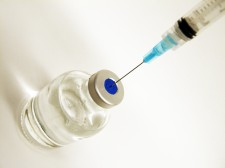 Although ACSH and other public health groups have repeatedly encouraged parents to vaccinate their children against the human papillomavirus (HPV), which causes cervical cancer (among other unpleasant conditions, such as genital warts), some parents have been reluctant to do so out of fear it would encourage earlier sexual activity or riskier sex.
Although ACSH and other public health groups have repeatedly encouraged parents to vaccinate their children against the human papillomavirus (HPV), which causes cervical cancer (among other unpleasant conditions, such as genital warts), some parents have been reluctant to do so out of fear it would encourage earlier sexual activity or riskier sex. Although ACSH and other public health groups have repeatedly encouraged parents to vaccinate their children against the human papillomavirus (HPV), which causes cervical cancer (among other unpleasant conditions, such as genital warts), some parents have been reluctant to do so out of fear it would encourage earlier sexual activity or riskier sex. But now yet another study this one from Emory University has found those concerns are unfounded.
Although ACSH and other public health groups have repeatedly encouraged parents to vaccinate their children against the human papillomavirus (HPV), which causes cervical cancer (among other unpleasant conditions, such as genital warts), some parents have been reluctant to do so out of fear it would encourage earlier sexual activity or riskier sex. But now yet another study this one from Emory University has found those concerns are unfounded.
Girls who had been vaccinated against HPV seemed no more likely to engage in sexual activity as those who did not, according to the study, which was published in the journal Pediatrics and used teen pregnancy, seeking birth control advice or getting sexually transmitted infections as surrogate markers for sexual activity. Researchers analyzed databases from Kaiser Permanente Georgia and found that out of 1,398 girls who were 11 or 12 when they saw their doctors in 2006 and 2007, 493 received at least one dose of the HPV vaccine. Based on records from primary care visits, 107 of the girls included in the study were given a pregnancy test through 2010, and 55 were tested for chlamydia. Vaccinated girls were no more likely to be tested for pregnancy and chlamydia than girls who had not received the HPV vaccine. Only two girls in each group became pregnant during the study, and one girl who'd been vaccinated was diagnosed with chlamydia, compared to three unvaccinated girls.
Dr. Saad Omer, an infectious diseases and vaccine researcher from Emory University in Atlanta who worked on the study, stated, Parents can be reassured at least based on the evidence that young girls who receive HPV vaccines did not show increased signs (of) clinical outcomes of sexual activity."
These are hard data, says ACSH s Dr. Gilbert Ross. They are much more reliable than surveys asking about sexual activity, etc. HPV is widespread, and has been shown to lead to cancer in multiple organs and can also cause genital warts, so it s important for both young women and men to get vaccinated.


